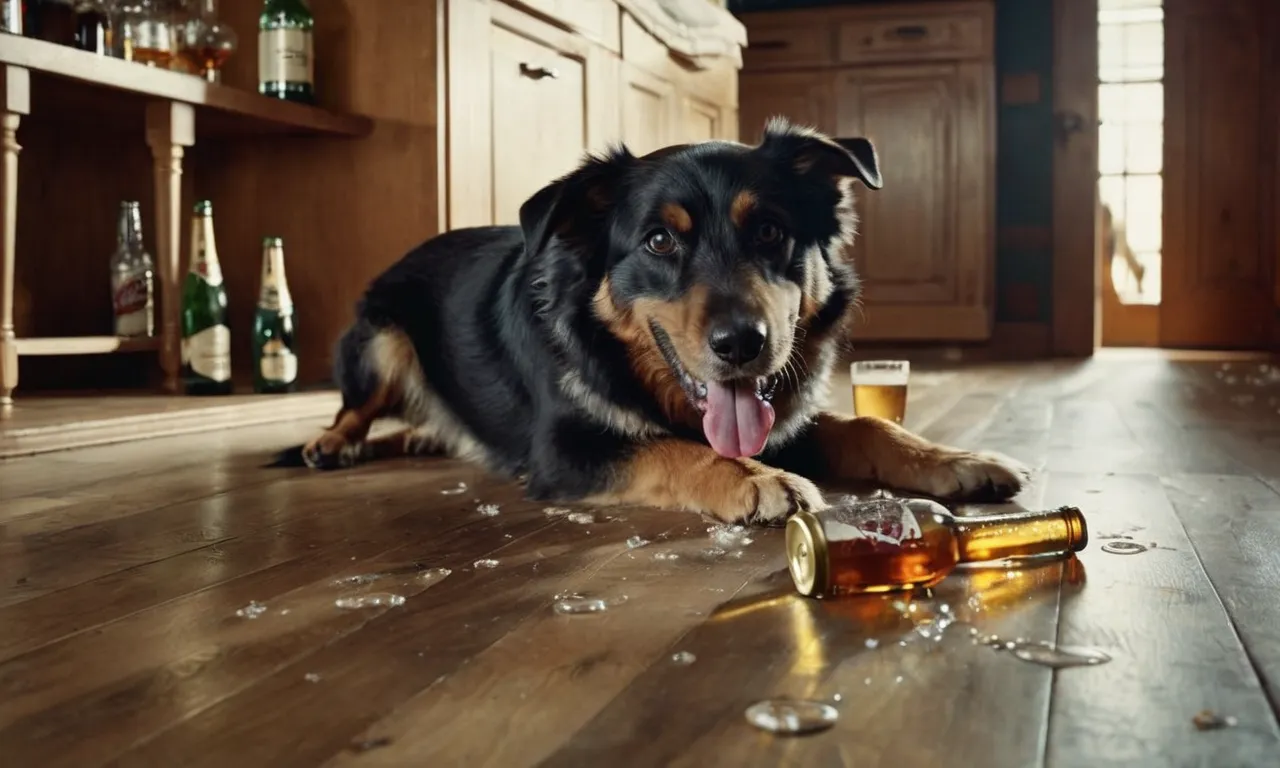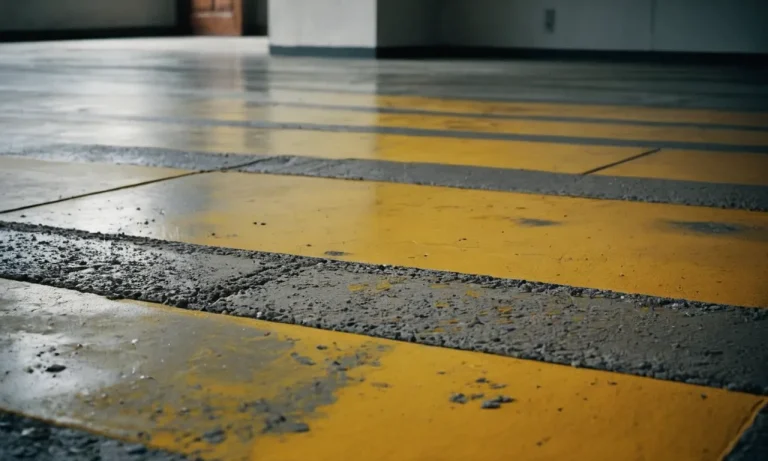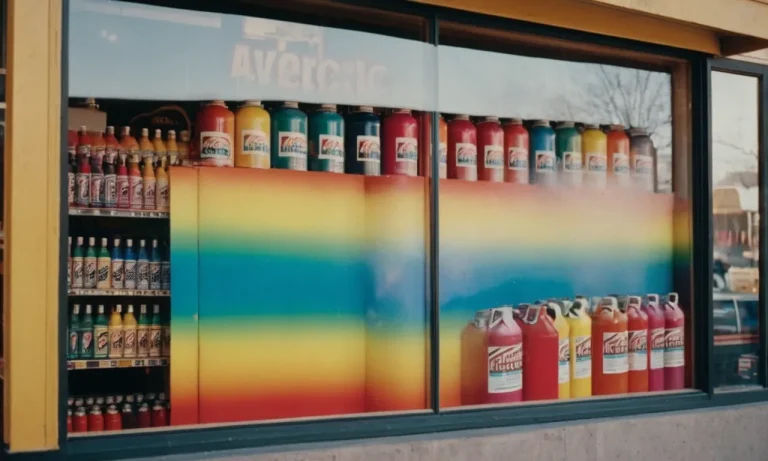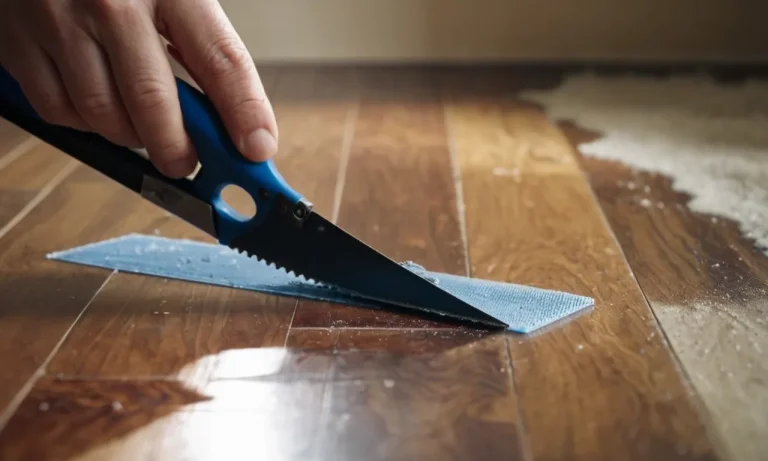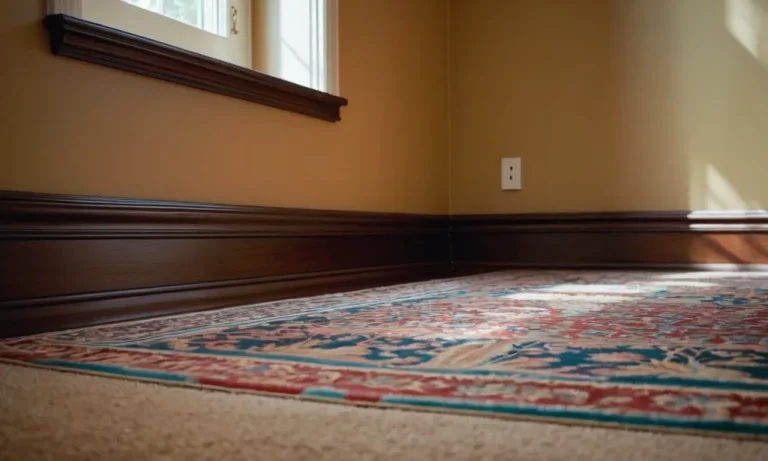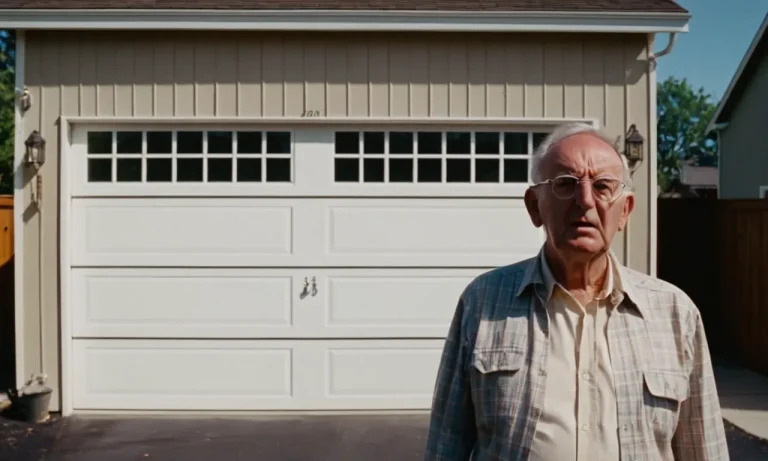What To Do If Your Dog Licks Beer Off The Floor
Seeing your dog lap up a puddle of spilled beer can be alarming for any pet owner. Beer contains ethanol, an intoxicating agent that can have adverse effects on your pup if consumed in large quantities.
While an occasional lick likely won’t harm your dog, understanding the risks and responding appropriately is key.
If you’re short on time, here’s the quick answer to your question: While small amounts of beer are unlikely to seriously harm your dog, you’ll want to monitor them closely for signs of alcohol intoxication like vomiting, loss of coordination, or excessive urination.
Prevent access to more beer, provide plenty of fresh water, and contact your vet if symptoms persist.
Assess How Much Beer Your Dog Consumed
If you discover that your dog has licked beer off the floor, it’s important to assess how much beer they actually consumed. While a small amount may not cause any harm, larger quantities can lead to alcohol poisoning in dogs.
Check for signs of intoxication
Observe your dog for any signs of intoxication. These may include stumbling, unsteady gait, lethargy, disorientation, vomiting, or even seizures. If you notice any of these symptoms, it’s important to take immediate action.
Monitor your dog closely over the next 24 hours
Even if your dog appears fine initially, it’s crucial to monitor them closely over the next 24 hours. Alcohol can have delayed effects, so it’s important to be vigilant. Keep an eye out for any changes in behavior or health, and contact your veterinarian if you have any concerns.
Remember, alcohol is toxic to dogs, and even small amounts can be dangerous. It’s always best to prevent your dog from accessing any alcoholic beverages in the first place. Keep an eye on your drinks and ensure that they are out of reach of your furry friend.
Minimize Additional Alcohol Consumption
Pick up any remaining beer spillage
If your dog has licked beer off the floor, it’s important to take immediate action to prevent any further consumption of alcohol. Start by cleaning up any remaining beer spillage from the floor. Use paper towels or a cloth to soak up the liquid, making sure to remove as much of it as possible.
This will help minimize the amount of alcohol your dog has access to.
Remove access to other alcohol sources
In addition to cleaning up the beer spillage, it’s essential to remove your dog’s access to any other alcohol sources in the area. Dogs are naturally curious, and if they have already tasted alcohol, they may be inclined to seek out more.
Make sure to secure any bottles, cups, or other containers containing alcohol and store them out of your dog’s reach. This will help prevent any further consumption and minimize the risk of alcohol poisoning.
It’s important to note that alcohol can be toxic to dogs, and even a small amount can have serious consequences. If you suspect that your dog has consumed a significant amount of alcohol or is showing signs of alcohol poisoning, it’s crucial to seek immediate veterinary attention.
For more information on dogs and alcohol consumption, you can visit www.akc.org, where you’ll find helpful tips and resources to keep your furry friend safe.
Help Sober Your Dog Up
If your dog has managed to lick beer off the floor, don’t panic. There are a few things you can do to help sober them up and ensure their well-being.
Encourage drinking water
First and foremost, it’s important to keep your dog hydrated. Alcohol can dehydrate your furry friend, so make sure they have access to plenty of fresh water. Encourage them to drink by placing their water bowl in a convenient location and using a cheerful, encouraging tone.
You can even add a few ice cubes to make it more enticing.
Pro tip: If your dog is not interested in drinking water, try adding a small amount of low-sodium chicken broth to make it more appealing.
Offer a bland diet to calm the stomach
Alcohol can irritate your dog’s stomach, causing discomfort and potential digestive issues. To help calm their stomach, offer them a bland diet for the next meal. This can include boiled chicken or turkey with plain, cooked rice or mashed sweet potatoes.
Avoid adding any seasonings or spices, as they can further upset their stomach.
Pro tip: Gradually reintroduce their regular dog food over the next few days to prevent any sudden gastrointestinal upsets.
Remember, if your dog is showing any concerning symptoms such as vomiting, seizures, or difficulty breathing, it’s important to seek veterinary assistance right away. They will be able to provide the necessary care and guidance to ensure your dog’s well-being.
Watch for Persistent Signs of Alcohol Poisoning
If your dog licks beer off the floor, it’s important to be aware of the potential risks associated with alcohol consumption in pets. While a small amount of beer may not cause harm, excessive consumption can lead to alcohol poisoning, which can be life-threatening for dogs.
It’s crucial to watch for persistent signs of alcohol poisoning and take appropriate action to ensure your dog’s well-being.
Look for vomiting, diarrhea, lethargy
If your dog has consumed beer and you notice persistent vomiting, diarrhea, or lethargy, these could be signs of alcohol poisoning. Alcohol can irritate the gastrointestinal tract, leading to stomach upset and digestive issues.
Additionally, alcohol can depress the central nervous system, causing your dog to appear sluggish or lethargic. If you observe any of these symptoms, it’s important to seek veterinary care immediately.
Monitor body temperature and heart rate
Alcohol poisoning can also affect your dog’s body temperature and heart rate. Increased body temperature, rapid heart rate, and difficulty breathing are potential signs of alcohol toxicity. Monitor your dog’s vital signs and seek veterinary attention if you notice any abnormalities.
Remember, it’s always better to be safe than sorry when it comes to your furry friend’s health.
For more information on alcohol poisoning in dogs, you can visit https://www.aspca.org/pet-care/general-pet-care/alcohol-poisoning.
Prevent Future Alcohol Exposure
If you find yourself in a situation where your dog has licked beer off the floor, it’s important to take steps to prevent future alcohol exposure. Dogs can have adverse reactions to alcohol, and it’s best to keep them away from it entirely. Here are some tips to help you ensure your dog’s safety:
Keep alcohol out of reach
One of the most effective ways to prevent alcohol exposure is to keep it out of your dog’s reach. Make sure to store any alcoholic beverages in a secure location, such as a locked cabinet or high shelf.
This will help prevent your dog from accidentally accessing the alcohol and potentially ingesting it.
Additionally, be mindful of where you place your drinks when you have your dog around. Avoid leaving them unattended on low surfaces where your dog can easily reach them. It’s always better to be safe than sorry!
Train your dog to avoid alcohol sources
Training your dog to avoid alcohol sources can be a helpful precautionary measure. Teach your dog the “leave it” command, which can be used to deter them from approaching any potentially harmful substances, including alcohol.
Consistent training and positive reinforcement can go a long way in ensuring your dog understands what is off-limits.
Another useful training technique is to create a negative association with alcohol. You can accomplish this by using a bitter-tasting deterrent spray on alcohol bottles or containers. The unpleasant taste will discourage your dog from approaching them.
Remember, training takes time and patience. Be consistent and reward your dog for good behavior. With time, they will learn to stay away from alcohol sources.
For more information on dog training techniques, you can visit reputable websites such as American Kennel Club (AKC) or American Society for the Prevention of Cruelty to Animals (ASPCA).
Conclusion
While an occasional lap of beer is unlikely to seriously harm your dog, alcohol intoxication can become dangerous if they’re able to consume larger amounts. By monitoring your dog closely, restricting access to additional alcohol, and contacting your vet if concerning symptoms arise, you can help safely sober your pup up and avoid any serious dangers from their beer licking adventures.

